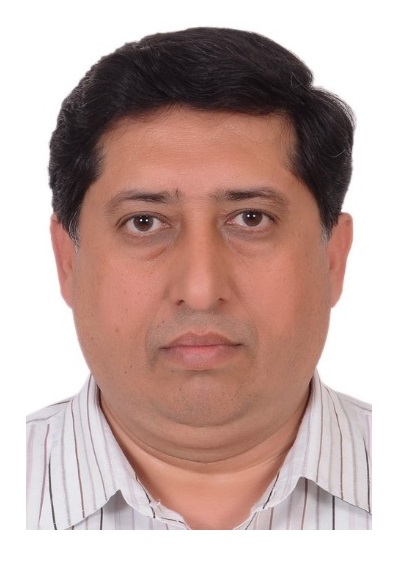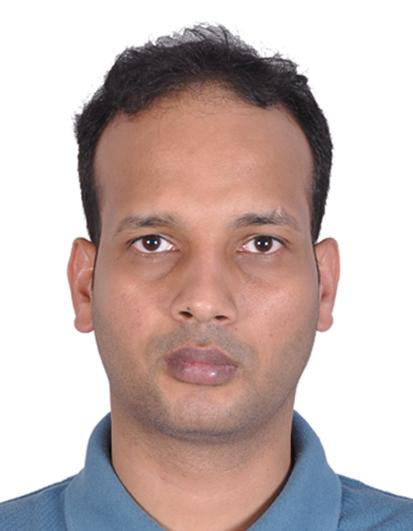SPEAKERS @ WORKSHOP ON “QUANTUM EFFECTS ON DIGITAL TRUST”

Name of the Speaker: Dr. S. D. Sudarsan
Talk Title: Journey of Public Key Infrastructure & Digital Trust
Brief Bio: Dr. S. D. Sudarsan is the Executive Director at C-DAC Bangalore since August 2020. He has more than three decades of R&D experience as Researcher and Manager in various domains of ICT. Prior to the current assignment, he served as R&D Manager at ABB, Visiting Scientist at US Food & Drug Administration (FDA), USA, Group Head at the Central Research Laboratory (CRL) of Bharat Electronics Limited (BEL), Scientist at funded R&D institutions.
He is an alumnus of BITS, Pilani and University of Arkansas at Little Rock, USA for Masters and PhD respectively. He is actively involved with professional bodies including IEEE, ACM, and IETE. He has contributed to various standard related activities at IEC/ISO/BIS and has served in various committees as well as task forces. He has multiple patents, and research publications in peer-reviewed International Journals and Conferences.
His areas of specialization include Wireless Communications, Next Generation Networks, Quantum Computing, Cyber Physical Systems, Cyber Security, Industrial IoT, R&D Management, IPR. He leads the domains including Safety and Mission Critical Systems; Quantum Computing, Cyber Security, IoE, HPC etc.

Name of the Speaker: Shri Aashish Banati
Talk Title: The key role of PKI in DPI
Brief Bio: Shri Aashish Banati, is a Deputy Controller (Technology) in the office of Controller of Certifying Authorities (CCA). He has had an illustrious tenure and has made indispensable contributions throughout his extensive career at Ministry of Electronics & IT in various capacities. Spanning over three decades, his journey has been defined by a series of noteworthy achievements and exemplary leadership across various pivotal roles. His expertise and proficiency in software and hardware security have been not only instrumental but also a guiding force in his relentless pursuit of excellence. His ability to ensure product quality and adherence to industry standards, such as ISO, IEC, IECQ, IEEE, JIS, and JSS, has set a remarkable benchmark.
His outstanding leadership in overseeing teams of engineers and fostering a culture of innovation and excellence has been highly commendable. The successful management and motivation of test teams for significant E-governance projects, including NSDG, MCA21, Passport Seva MoUD, stand as testament to his strategic vision and commitment to promoting indigenous token solutions and standardized protocols. He has led the Indian Common Criteria scheme at STQC and spearheading the Biometric Device Certification scheme, which was acknowledged and appreciated by esteemed individuals like Shri Nandan Nilekani ji, showcase his profound influence and expertise in the domain.
In his role as Deputy Controller (Technology), his diligence and dedication in regulating Digital Signatures and driving global mutual recognition initiatives have significantly contributed to the safety and security of the entire digital ecosystem. His leadership in the domains of PKI, Digital Signature, and Post Quantum Crypto has played a pivotal role in upholding the highest standards of security. He has also been promoting the indigenisation in the CCA ecosystem which will soon be seen in tokens, software, common API, tools for fraud prevention etc. His unwavering commitment to the Office of Controller of Certifying Authorities and relentless efforts in shaping its framework and operations have been indispensable. His impact has reverberated not just within the organization but also across the broader digital security landscape.

Name of the Speaker: Dr. Balaji Rajendran
Talk Title: Digital Complexities in Digital Trust
Brief Bio: Dr. Balaji Rajendran is working as an Associate Director and heads the Resilient Information Systems and Engineering (RISE) Group at C-DAC Bangalore. He is currently leading the Open Challenge for development of Indigenous Web Browser for the country. He established the Centre of Excellence in DNS Security with the support of the Ministry and Industry. Under his leadership, a national level project effort for developing Next Generation Smart Applications enabled with digital trust is being undertaken. He is an Internet evangelist and had established a forum (Indian Internet Research and Engineering Forum) for promoting the development of Internet Protocol Standards in India. He has executed several funded (both National and International) and commercial projects predominantly in the areas of Information Security, and Critical Information Infrastructure. He has more than 22+ years of R&D experience in various niche segments of IT. He has published 50+ research papers in various International Conferences and Journals. He is a Fellow of IETE, Senior Member of IEEE, member of ACM, and National Expert Member for developing IoT Security Standards by ISO. He has received national and international fellowships for attending Internet Research and Engineering meetings and cyber security training. He has delivered 100+ technical talks in various prestigious forums. He is a mentor for PhD scholars in the domain of Cyber Security, and a co-supervisor at NIT-T, NIT-K, IIT-M, and IISc. He has received various fellowship awards for Internet leadership and professional development. His research interests and work areas are in the domain of smart, secure, and resilient information systems.

Name of the Speaker: Dr. Mohammed Misbahuddin
Talk Title: IEEE P2989 – A Standard for Authentication in a Multi-server Environment
Brief Bio: Dr. Mohammed Misbahuddin holds B.Tech. (CSE), M.Tech. (Software Engg.) and PhD (CSE). He is working as Associate Director at Centre for Development of Advanced Computing (C-DAC) Bangalore, where he heads, ACTS and BD Divisions. He is the Chief Investigator of Ministry of Electronics & IT funded Capacity Building projects in the areas of Information Security and High-Performance Computing. He is the Co-Investigator of Next Generation PKI for Smart Applications Project funded by Office of CCA, MeitY, Govt. of India. He is the Nodal Officer and Lead for the Work Based Learning Project, funded by MeitY. He leads various consultancy projects on Cyber Security. He is the Member-Convener of Academic Council of C-DAC.
He is the Chair of IEEE P2989 Working Group on Development of Standard for Authentication in Multi-Server Environment. He has two Patents granted by Indian Patent Office (IPO) in Secure and Usable Authentication. He has 40+ Research publications published in International Journals and Conferences. He has 22 years of experience in Research, Training and Project Development. He has successfully supervised 3 scholars towards the award of PhD and is supervising 3 PhD scholars from different Universities. He is the Initiator and Co-Investigator of National e-Authentication Project called “e-Pramaan”. He is lead author of e-Authentication Standards published by MeitY, Govt. of India and Cyber Security Standards of agencies of Ministry of Power and Ministry of Defence. He has been a guest speaker at various International and National conferences / workshops and has delivered more than 200+ talks across 32 States & UTs in India. His areas of interest include Information Security, Strong Authentication, PKI, Risk based Engines, Identity of Things.

Name of the Speaker: Mr. Anoop Kumar Pandey
Talk Title: Qubits and Cryptography
Brief Bio: Mr Anoop Kumar Pandey is working as a Joint Director at C-DAC Bengaluru. He is also a senior member of IEEE. He has an MS By Research Degree in Computer Science and Engineering from IIIT Bangalore. He is pursuing a PhD from IIT Hyderabad in Quantum Cryptography. He has published 20+ papers in various conferences and journals. He has 12 years of experience working in Public Key Infrastructure, Disaster Recovery, Data Science, Web designing, Internet Engineering and DNS Security. He has been instrumental in completing several projects in CDAC. He has received several fellowships from NIXI, CDAC and EMC. His interest areas include Cyber Security, Public Key Infrastructure, Web Science, Business continuity and Quantum Computing.